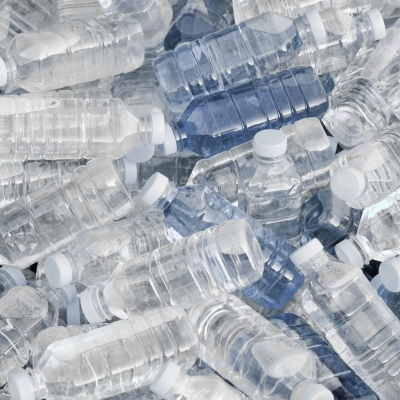 The other day, a patient of mine asked me if I had seen the story on television regarding the presence of traces of pharmaceutical drugs in the nation’s water supply. I had. My patient wanted to know how serious of a problem it is and what he could do to prevent exposure to drugs in the water supply.
The other day, a patient of mine asked me if I had seen the story on television regarding the presence of traces of pharmaceutical drugs in the nation’s water supply. I had. My patient wanted to know how serious of a problem it is and what he could do to prevent exposure to drugs in the water supply.
How Big IS The Problem?
An investigation recently done by Associated Press had found that antibiotics, hormones, seizure drugs, psychotropic drugs including mood stabilizers/antidepressants, cardiac medication, were found in trace levels in 24 major metropolitan areas affecting over 41 million Americans’ drinking water! However, the problem also exists in Europe where waters tested included lakes, streams, reservoirs and rivers in Asia, Central Europe, Australia, Switzerland and the North Sea!
States in the U.S. that were part of AP’s study included California, New Jersey, Nevada, Pennsylvania, Michigan, Missouri, Texas and Virginia. Drugs found included a range of prescription drugs including male and female hormones of estrogen and testosterone, in addition to over-the-counter drugs like Tylenol and ibuprofen.
Researchers assert that hormones in the water supply, whether from pharmaceuticals or those given to farm animals, may be the reason there are so many genetic mutations of particular animals in the environment that are now starting to crop up.
I always counsel my patients about taking too much Tylenol or ibuprofen. Tylenol can have adverse affects on your liver and too much ibuprofen is now thought to have harmful effects on your heart. Too many antibiotics can lead to building up a resistance to them and possibly developing a superbug (MRSA, MSSA) infection that are very difficult to treat.
How Do These Drugs Get in the Water?
The most obvious way that pharmaceuticals get into the water is this. When people take drugs, the body metabolizes a certain amount of it and the rest is excreted through urination.
A second, potentially more dangerous, way, however, is that people are actually dumping their old prescriptions whole into the water supply through their toilet. This second scenario also happens on a larger scale when illegal drug dealers at risk of getting caught with contraband, flush it all down the toilet. Pounds of cocaine, methamphetamine, tranquilizers, hypnotics (sleeping pills) have all been flushed down toilets in big urban cities like New York, Detroit, Philadelphia, Chicago and Los Angeles.
Water treatment centers can filter out and clean the majority of all contaminants in water so that it is 99% clean, but many drug residues pass right by the filters of these water treatment centers and move directly into the water supply. Most water treatment centers add chlorine to the water cleaning treatment and chlorine can add an unwelcome synergy to many pharmaceutical drugs.
What Can You Do To Prevent Absorbing Other People’s Drugs?
There are several things you can do to both prevent consuming pharmaceuticals and other chemicals from the water supply and/or be sure you are cleansing them from your system. Here is what I recommend to my patients:
Buy a good filter – Select a multi-stage water filtration system for your water faucets that you use for your drinking water. This type of filter is capable of filtering drugs and other chemicals (like chlorine) out of your water while preserving beneficial minerals like calcium, magnesium and potassium.
Buy bottled water – Stick to water processed through a reverse osmosis system. Re-use your bottles to decrease plastic discarded into the environment. Preferably, purchase heavy glass bottles and use them to refill your water. Drink adequate amounts of water daily.
Milk Thistle (silymarin) – Helps detox your liver and filter harmful substances from your body.
Uva Ursi – Helps cleanse toxins from your blood through your kidneys.
Test your water – Take a sample of your faucet water to a water-testing laboratory near you and have it analyzed for what is present in your water.
Fresh lemon juice – Drink several tablespoons in hot (boiled) water every morning. You can sweeten with a little stevia if you like. This helps cleanse the liver and remove mucus from the walls of the colon that tends to retain toxins.
High fiber diet – Keeping the colon clean will greatly lessen the buildup of toxins in you.
Exercise/Lose Fat – The body stores toxins in fat cells. Aerobic, fat burning exercise will burn fat and release toxins from your body. Try for 30 minutes of aerobic exercise a day, with minimum of 4 times a day.
Although some people argue that the amount of pharmaceutical drugs getting into the water supply are merely a trace and do not pose a threat, I disagree. No one yet knows what the cumulative effect of constant exposure to drugs through drinking water is and the reason the EPA is studying to find a clear answer. Do your part by disposing your prescriptions safely. Many pharmacies and hospitals accept old prescriptions and will dispose of them for you. Participating in “clean out your medicine cabinet” drives can also help get rid of out dated medicines in a safe manner.
Photo Credit: Keattikorn
